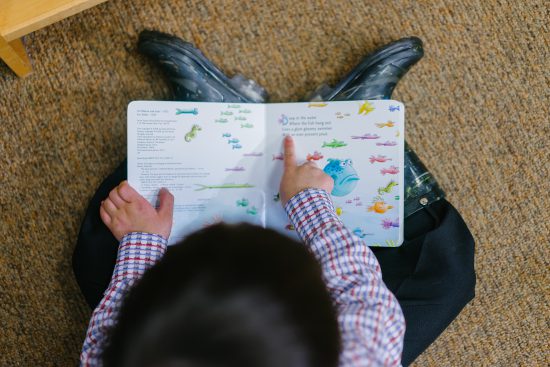
3:06 pm, Thursday, 7th October 2021
Dyslexia Awareness Week. Top tips on reading
This week is Dyslexia Awareness Week.
Enjoy four days of ‘Top tips’ to help parents and carers support their child with dyslexia.
- Thursday- Reading
- Friday- Sight word games
- Saturday- Spelling
- Sunday- Writing
Enjoy today’s top tips on reading!
- Encourage your child to read their school reading book to you. Listen to your child read at least three to five times a week. Little and often will make a big difference. The more they read, the more they will soak up how words are spelt.
- In addition, or as an alternative, ask your child to read their own books to you. Ask your child to choose what they would like to read. They will feel more interested in the story if they have picked it out themselves.
- Encourage older children to read newspapers, magazines, joke books, comics, recipes, etc. as well as books. Also discuss reading – ask what’s interested them in anything they’ve read recently.
- Sit in a quiet, comfortable place and if you can, turn off the TV, radio and computer.
- Set aside a time for reading – e.g.10 minutes after school or before school.
- Look through all the pictures to help your child predict what the story might be about.
- Before you start the story, read character names, place names to your child and give them these words, if they become stuck as they read.
- Early readers; encourage them to point to the words as they read
- Progressing readers; use a card under the line

- Advanced readers; track down the left side of each line, helping the learner easily find their place in the text.
- Encourage your child to make a guess about what might happen next in the story before you turn the page.
- If your child gets stuck on a word, remind them of the strategies they can use:
- Give them a chance to say the correct word.
- Look at the picture and think about what word would fit/make sense and check with the first letter.
- Skip the word and see if you can work it out at the end of the sentence.
- If it is a regular word encourage stretching out the word or sounding out e.g. s-a-n-d, s-l-ee-t, ch- ai-n, b-r-ow-n.
- If it is a regular word encourage stretching out the word or sounding out e.g. s-a-n-d, s-l-ee-t, ch- ai-n, b-r-ow-n.
- Look for smaller words within a larger word that they already know.
- For longer words, break the word into syllables or beats e.g. tel-e-phone.

- Talk about the story you have read and ask your child what they liked about the story.
- Ensuring your child understands the text is very important. It is also sometimes better to tell them an unknown word to keep momentum and interest going, rather than make them sound it out.
- Ask lots of questions about the text to gauge their understanding such as: ‘What is going on in the story?’, ‘What would you have done if you were…?’, ‘Can you guess what is going to happen next?’, ‘Who are the main characters?’, ‘Where is the story set?’ ‘How is…… feeling in the story?’
- Share the book, reading a page each. Model using expression.
- Keep reading to children. Reading to children exposes them to lots of words which will increase their vocabulary and also help their writing skills. For younger children, read favourite books and let the children chime in with bits they know. Young children love a bedtime story! For older children read longer stories or chapter books, reading one or two chapters per day.
- Visit the local library and borrow books
- Talk about the words they see in everyday life- food packaging, signs in the supermarkets, signs in the street/shops, messages on birthday cards and invitations.
- If you’re watching TV, can they read out the listings? Turn on sub-titles.
https://www.youtube.com/watch?v=b656ysp1ol4
- Give books as presents. And encourage your children and their friends to swap books with each other.
- Play games such as Bananagrams, Junior Scrabble, Hangman, TRUGs, Top Trumps, Boggle etc.
- Buy a simple dictionary and use it to check the meanings of new words.
- Be positive. Boost their confidence with positive praise for even the smallest achievement.
- Audio books allow your child to read age- appropriate texts. Visit Oxford Owl website for the free eBook library which has been created to help children aged 3–11 to develop their reading skills at home. Free eBook library – practise reading with phonics eBooks | Oxford Owl.
